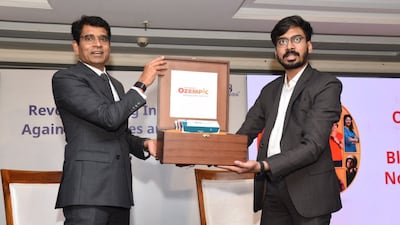Diabetes
Sun’s founder reinforces the firm’s M&A strategy, indicating that it is "comfortable raising debt" if required, but shares no specific comment on the speculated interest in Organon. The Indian company also has "sufficient supplies" to meet demand for generic semaglutide in India post LoE.
In line with previously disclosed launch and partnering plans for GLP-1 products, Lupin shook hands with Galenicum, securing commercial rights to injectable semaglutide.
Dr Reddy’s gears for semaglutide debut across markets, including India and Canada, where Novo Nordisk has second brands of the GLP-1 agonist potentially ready. Can the Indian group close out compliance queries from the Canadian regulator soon?
The planned submission marks a key regulatory step toward potential day-one launches in Europe.
The firm's type 1 diabetes drug has been given the green light by the European Commission.
A search bar has become one of the most powerful gateways into modern healthcare. The result is a gray zone where advertising practices, consumer trust and public health collide, raising questions about whether digital marketing has outpaced regulation.
2025 saw star products debut in India as foreign firms doubled down on high-value, IP-protected therapies. Experts tell Scrip the top 10 cities in the country can now sustain “US/EU-style” specialty launches.
Decision matches earlier Dr Reddy’s outcome, although no injunctive action involved, allowing exports to non-patent markets ahead of a post-expiry launch.
Ozempic debuts in India, priced in the ‘affordable zone’ for the country's population, with Novo Nordisk hoping the blockbuster drug can hold its own post impending loss of exclusivity in the country next year.
Cipla’s rollout of Lilly’s tirzepatide second brand comes as Wegovy price cuts tighten competition in India’s fast-growing GLP-1 market.
A Delhi High Court has declined Novo Nordisk’s bid to halt Reddy’s ongoing production, allowing exports while patent validity proceeds to trial.
AstraZeneca, Lilly, Novo Nordisk and Amgen all moved up in the rankings on the Scrip 100 leaderboard powered by impressive double-digit growth.











